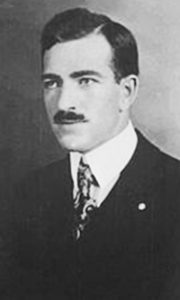
Richard E. Norman
*Richard E. Norman was born on this date in 1891. He was a white-American filmmaker.
From Middleburg, Florida, he was the son of Ricard and Katheryn Bruce Norman. Richard Edward Norman started his film career in the Midwest, making movies for white audiences in the 1910s. His early work was a series of "home talent" films in which he traveled to various towns. They would film a small portion of footage (approximately 200 feet of new material) over a few days.
During the early Jim Crow era, films with an African American cast and explicitly shown to African American audiences were known as "race films." Norman Studios produced several of these films during the 1920s. Richard Norman's reason for making race films was not solely a business decision. Norman was also motivated by the state of race relations at the time. The untapped black filmgoer market and the surplus of talented performers unable to get work in mainstream films lead to the production of race films by Norman Studios.
Norman moved to Jacksonville and bought the studio in 1920 at 29. Norman occupied the studios before purchasing them. The film's success brought attention to the studio from other black actors hoping to star in later films. Race Films produced by Norman Studios include:
Richard Norman died on November 7, 1960.